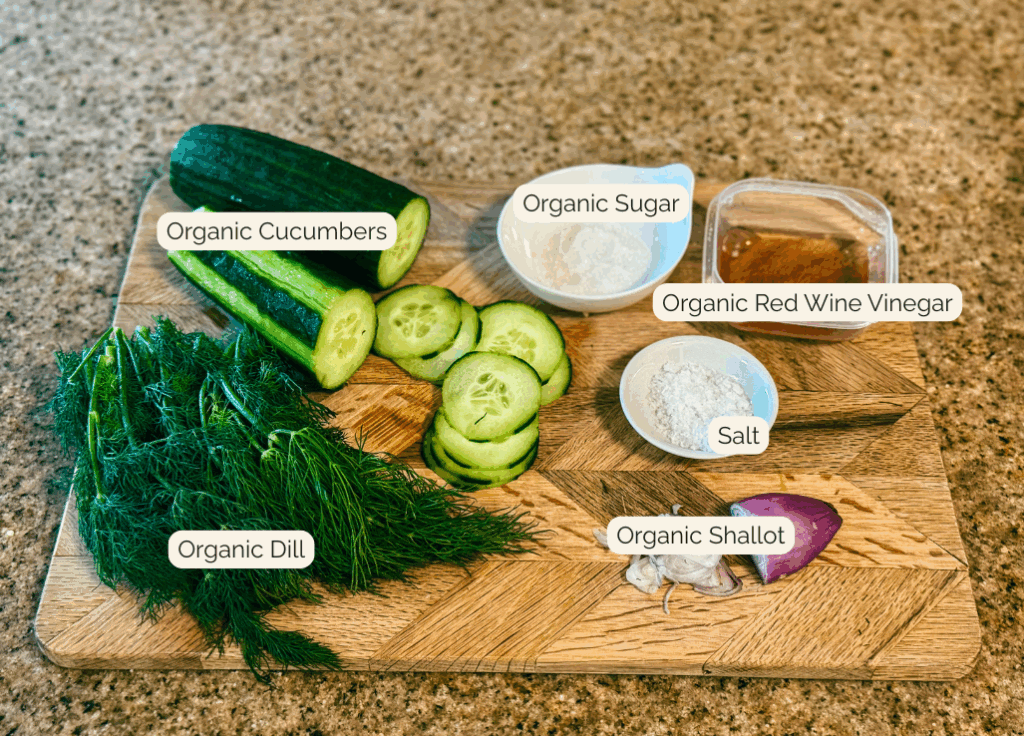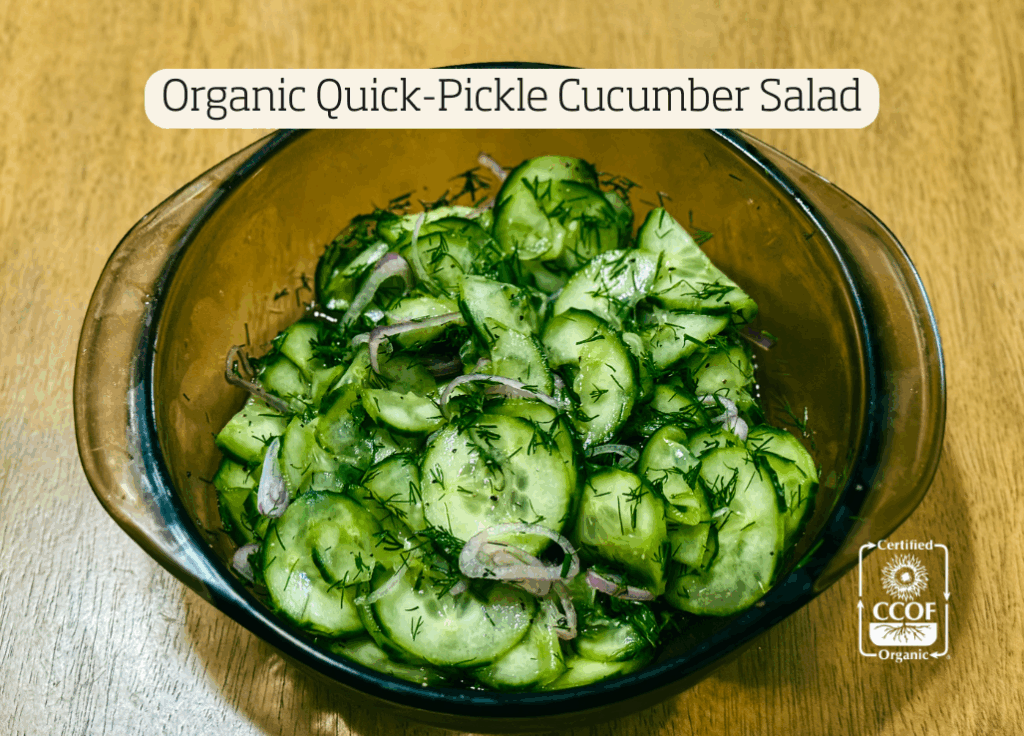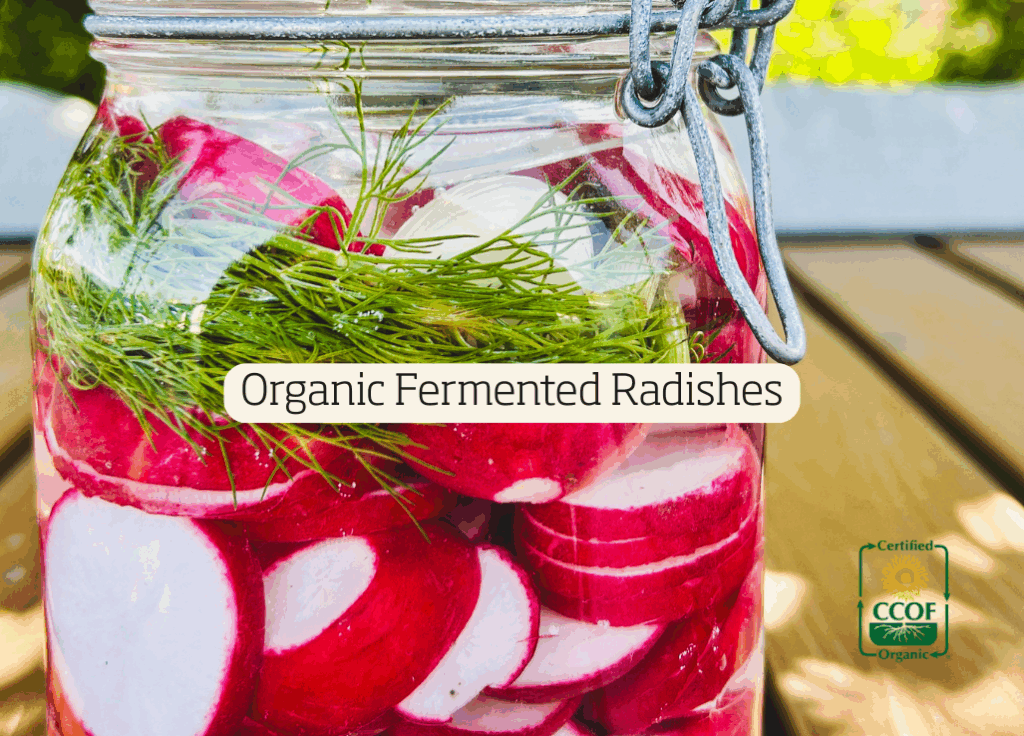Can’t get enough pickle-y goodness? This Organic Quick-Pickle Cucumber Salad is an easy side that pairs perfectly with summer recipes.
When you use organic ingredients in your cooking, you can feel confident that you are supporting the most regulated and traceable food system in America. USDA Organic is the only food label that is protected by law, inspected by experts, traced from farm-to-store, and shaped by public input. The USDA Organic seal guarantees that specially trained organic inspectors have visited each farm and business associated with the product to ensure they meet all organic standards, including growing crops without synthetic pesticides and GMOs, and creating packaged foods that are free of artificial colors, flavors, and preservatives.
What You’ll Need

- 1 organic cucumber
- 1/3 cup of chopped organic dill
- 3 tablespoons organic red wine vinegar
- 3 tablespoons organic distilled vinegar
- 1 organic shallot, thinly sliced
- 1 teaspoon organic sugar or honey
- Salt to taste
Directions
- Prepare the cucumber: Peel the cucumber in alternating strips and slice into thin rounds. Toss the cucumbers with salt and let sit in a strainer for 5 to 30 minutes to drain excess moisture, leaving the perfect crunchy bite.
- Make the dressing: While the cucumbers are salting, combine the vinegar and sugar into a bowl and mix until sugar is dissolved.
- Combine ingredients: Add the salted and drained cucumber, dill, and shallot to the bowl with the vinegar mixture. Toss everything together.
- Chill and serve: Cover and refrigerate for 30 minutes to 2 hours.
Find Your Organic Ingredients
The CCOF Organic Directory is a great resource to find all your organic ingredient needs. Simply search by ingredient or product to find certified organic farms and companies in your local area. You can learn more about how to use the Organic Directory here.


